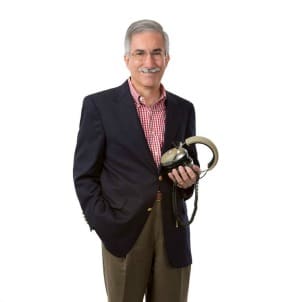
NBC evening news anchor Brian Williams, in his reporting of wartime combat in 2003, has, over time, changed his story from apparently being in another helicopter far behind a lead helicopter hit by a rocket-propelled grenade, to being in the lead helicopter itself. Additionally, his stated recollections of hurricane experiences in post-Katrina interviews have come under question, such as witnessing a suicide at the Superdome, watching a body float past the Ritz-Carlton, catching dysentery, and being terrorized by gangs near the Ritz-Carlton.
Williams is a high-profile news anchor with a presentation style that can only be described as gravitas. Therefore, any allegation of inaccuracies or embellishments strikes at the heart of both the image and reputation that Williams has spent decades erecting.
But, as communications law counsel to broadcast stations, my concern is less with any one anchor or newsperson’s character, but rather with FCC ramifications that may flow from inaccurate or patently false news broadcasting. This is not to minimize nor ignore the journalistic issues that arise from the apparent significant discrepancies in Williams’ stated recollections. I will simply leave observations on journalistic integrity to others.
Can instances of news distortion, or reporting falsehoods as news, impact a broadcast station’s FCC license? The short answer is yes, but with the qualification that FCC adverse action for news distortion is rare.
 Before delving more deeply into FCC news distortion policy, it is worth noting that it appears that the criticisms of Williams involve his recollections given in interviews or speeches he made well after his on-air reporting took place. At least at this point, the accusations do not appear to suggest that Williams’ contemporaneous on-air network reporting accounts are suspect.
Before delving more deeply into FCC news distortion policy, it is worth noting that it appears that the criticisms of Williams involve his recollections given in interviews or speeches he made well after his on-air reporting took place. At least at this point, the accusations do not appear to suggest that Williams’ contemporaneous on-air network reporting accounts are suspect.
Or more to the point, Williams may be at once an anchor with impeccable accuracy in his contemporaneous reporting, and at the same time a person that likes the sound of his own storytelling voice so much that he feels an obligation to hype a more mundane earlier-told story to create excitement for a later audience.
Nonetheless, fabrications in the news business can be career killers. Several decades ago, Janet Cooke’s fictional series on Jimmy in The Washington Post, and Jayson Blair’s plagiarized and fake reporting in in The New York Times, earned each of them the title of “former journalist.” In FCC annals, the fake news reporting of a radio personality’s Devil’s Triangle Trip in which the news director “intentionally had false and deceptive newscasts broadcast” was held by the FCC to be an “egregious case of misconduct” and a “fraud on the listening public.” That news distortion, along with other malfeasance, resulted in the denial of the FCC license renewal for WMJX(FM), Miami in the late 1970s.
Without in any way suggesting that Brian Williams’ actions have risen to a level approaching FCC-actionable news distortion, let’s take a look at what the FCC specifically states about broadcast station news distortion. The FCC states that it will not attempt to judge the accuracy of broadcast station news reports or to determine whether a reporter should have included additional facts, observing that such authentication would “cast the chill of omnipresent government censorship” over a broadcaster’s independent news judgment.
The FCC also states, however, that “the intentional distortion of news constitutes an act counter to the public interest.” Thus, the FCC will balance First Amendment and public interest concerns by insisting that for a news distortion inquiry to take place, there must be “substantial extrinsic evidence” that a broadcaster has deliberately distorted its news reporting, such as receiving written or oral instructions from station management or evidence of bribery.
Adverse FCC action in news distortion cases requires “deliberate distortion or falsification of the news involving the licensee, its top management, or its news management.” Further, in evaluating whether news distortion impacts the station’s license, the FCC takes into account whether it involves a significant event and is not merely a minor or incidental aspect of the news report.
Editorial perspective, in particular, is not news distortion or slanting. In 2013, the FCC flatly refused to take up allegations in the context of a station sale where a media group acquiring certain stations stated that it planned to tailor the news to be more business-friendly and, in particular, to present viewpoints favorable to the cable company parent entity that would own the stations.
So where does all of this leave Brian Williams and the FCC-licensed stations upon which he appears? Even if Williams was accused of fabricating news during the actual newscasts — which he is not — FCC ramifications are highly unlikely in the absence of any management acquiescence or participation. Further Williams’ currently known fabrications are likely characterized, at worst, as relatively minor or incidental aspects of the news report.
Storytelling is a great art. When grounded in facts, storytelling also makes for a great newscast. The best that can be presently said for Williams is that his hype and embellishment of his life experiences that once were news stories, fall into the category of an inability or an unwillingness to later tell a factually balanced and accurate story to an audience eager for something more exciting.
In other words, Brian Williams may be more of an ordinary person than his carefully cultivated television persona has led us to believe. Whether that qualifies him to continue to anchor the evening news will be a decision up to NBC, however, not the FCC.







